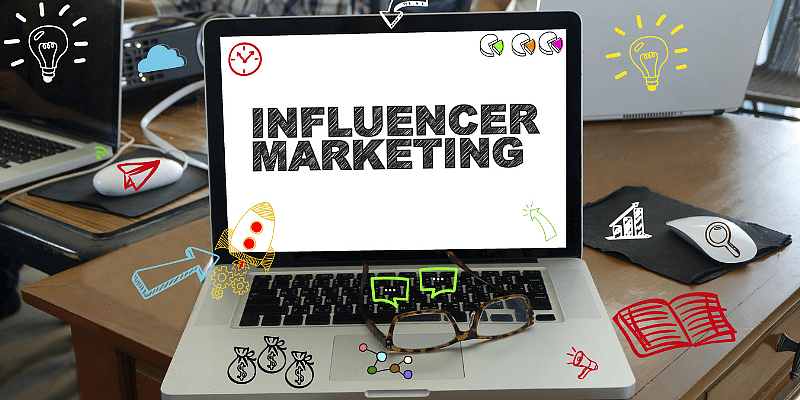Everyone knows an advertisement when they look at one on their TV channels or now on their social media feed. However, we scroll or change the channel when an ad spot hits us. It is mass reach, and we can’t avoid the power of that.
But, what about the advertisements around brands? Here comes the power of a well-crafted influencer campaign.
Today, social media influencers are opinion makers, conversation makers, trendsetters — basically a select group of people with a common interest.
Most importantly, influencers are voices who got ears. These influencers are experts in their niche or subject matter experts or simply good content creators.
Their recommendations serve as social proof for brands owing to trust reposed in them by the target audience.
Essential to brand marketing
Influencer marketing is often a part of a larger marketing plan for brands, encompassing social media marketing and content marketing. Though influencer marketing has been around in some form for about half a century, the social media era led to its crystallisation and amplification of its value to brands worldwide.
Influencer marketing refers to a form of social media marketing, which leverages endorsements and product mentions from individuals with large social media followers to drive the brand’s message and maximise its reach.
Influencer marketing in a marketing plan
The proliferation of social media platforms, changes in customers’ tastes and preferences, and diminishing consumer loyalties amid stiff competition has provided a fillip to influencer marketing in the past few years.
As more brands augment digital marketing efforts, statistics indicate that it may be inadequate alone to maximise the reach.
A Google report reveals that 56 percent of paid-for digital ad impressions are missed, whereas a Sckream report highlights that about 66 percent of customers are overwhelmed by online advertisements.
Influencer marketing is new-age marketing that overcomes the digital ad fatigue, lending authenticity to the brand message. It is a valuable channel to create ongoing conversations about brands on social media platforms by recognising the power of social media presence.
The multiplier benefits of influencer marketing go beyond clicks and engagements to influence tangible business outcomes, including attracting new customers, remarketing, cultivating a league of brand loyalists, and maximising customer lifetime revenue.
A Tapinfluence-Nielsen Catalina Solutions research has found that influencer content outperformed traditional digital ads by 11X higher ROI annually. According to a Twitter survey, nearly 40 percent of people agree to make purchases due to a tweet from an influencer.
Planning and measuring influencer marketing efforts
The scope of influencer marketing is widening to become a discipline itself. Implementing an influencer marketing campaign requires concerted strategy and planning.
It is imperative to know your target audience and the message you want to convey at the outset. One must be clear about the campaign’s goals — be it brand awareness, engaging conversation, driving app installs, or increasing sales.
Subsequently, one must identify and shortlist suitable influencers and categorise them according to their preferences and utility. Marketing platforms, networks, and even a simple Google search are excellent methods for conducting influencer research.
Just influencer selection isn’t enough to get content right
Content is at the centrepiece of influencer marketing campaigns. But what is good content? Good content instantly strikes a chord with your target audience through immersive storytelling.
The content in influencer marketing campaigns should address questions like “What’s your brand story?” “What is the creator’s unique perspective behind it?”
These experiences aligning with brand messaging motivate customers to fulfil the key objectives of the campaign. Additionally, an optimised content distribution beyond social media channels such as print and TV advertisements, newsletter, etc., serves as a viable option for widening the campaign reach.
To ensure the effectiveness of the influencer marketing campaigns, it must leverage authentic and engaging content. In the age of cut-throat competition, differentiation and integration of the influencer marketing strategy in the customer funnel are vital in gaining a competitive edge.
Another important aspect refers to pricing. More and more marketers are becoming increasingly vocal about transparency into the pricing strategy to enhance credibility for the brand.
Amid increasing concerns of user privacy and copyright infringement, it is imperative to be thoroughly abreast of the legal framework and ensure due compliance with it.
Role of technology
Emerging technologies, including Big Data, Artificial Intelligence, Virtual Reality, etc., lend a new dimension to influencer marketing. Today, brands have become aware of the difference between ‘just generating likes’ or ‘driving authentic engagement.’
Data analytics helps marketers gain an in-depth understanding of the consumers’ persona in real-time, which helps in optimising the campaigns early on. Automation also helps in handpicking the most suitable influencers from the lot, classifying them according to their attributes, thereby enabling the marketers to make informed decisions.
Technology is thus an enabler to improving operational efficiency and enhancing customer experiences.
There are tools available that help you measure the particular influencer profile on different key parameters, and based on that, you can select influencers to measure or campaign post-execution.
Way forward
With customers becoming more discerning in their choices and blurring boundaries between various marketing disciplines, precise influencer identification and selection and premium content are the critical ingredients for its effectiveness.
The sorting of these influencers according to their budget, content, and ROI holds weight amid personalisation gaining currency. The increasing number of social media users, emphasis on brand marketing as a corollary to influencing business outcomes, and the efforts to stand out from the clutter imply that influencer marketing is here to stay.
(Disclaimer: The views and opinions expressed in this article are those of the author and do not necessarily reflect the views of YourStory.)










